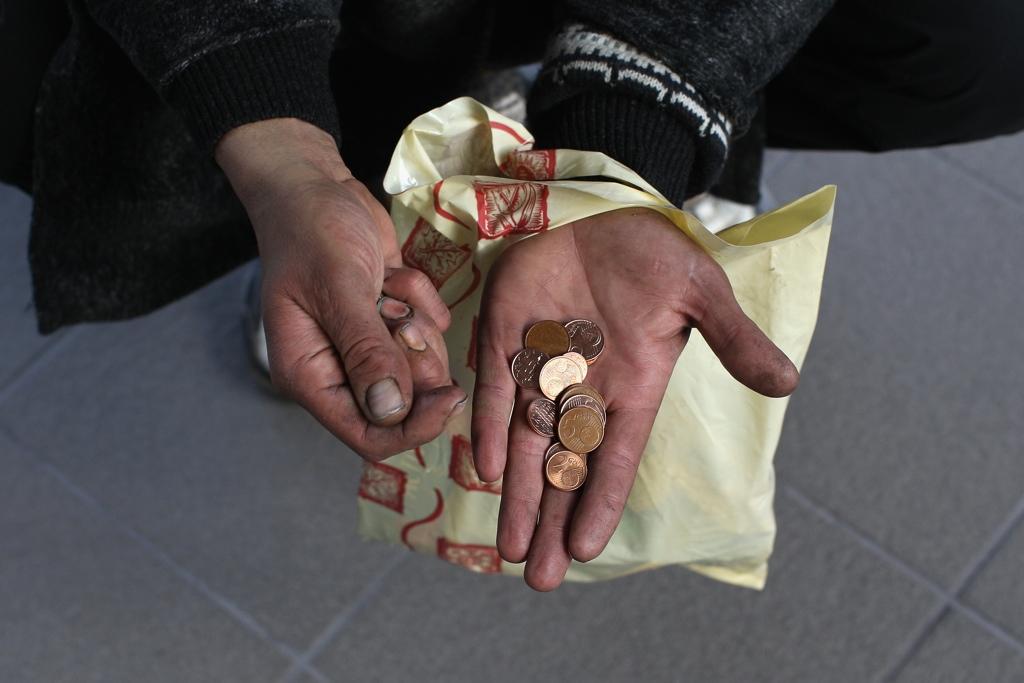Greeks fear bailout will bring more economic woes
Over 20,000 Greeks are homeless, and about 10,000 sleep on the streets of Athens. Under new austerity measures, Greeks fear it could only get worse.
ATHENS, Greece — Average Greeks remain pessimistic about their future despite the approval of a $170 billion bailout that Prime Minister Lucas Papademos hailed as “historic” for the country’s fast-shrinking economy.
Euro zone finance ministers approved Greece’s second massive loan package in Brussels early this morning and reaction to the vote was mixed. But one unifying theme was that Greece’s immediate future remains bleak.
“Psychologically, I am close to collapse because I am concerned about my family,” said Dimitris Paras, a 38-year-old investment banker who was laid off one month ago. “Now, I either work for a coffee shop or go abroad.”
Read more: What the Greek bailout means for Europe
The new loan could worsen the situation, Paras said, because if the government falls behind on reforms, it will be pressured by foreign lenders to impose extra austerity measures. And that would push even middle-class Greeks like himself into the streets to protest.
“There will be a point when people won’t take it anymore,” he said.
Without the loan, Greece would spiral into default. It has been surviving on regular installments of a $150 billion international bailout approved nearly two years ago, shortly after it was revealed that the country was drowning in debt.
The new package is designed to bring Greece’s debt to sustainable levels by 2020. It proposes that private sector bondholders — comprising $268 billion of Greece’s debt — accept a loss or “haircut” of 53.5 percent. Greek officials must quickly secure an agreement with these investors — mainly private banks — before a March payout.
Read more: Is Portugual the next country in trouble?
When Greece issues the new, lower-valued bonds to the private banks, they will be governed under English law, giving investors stronger guarantees. Paras, the unemployed banker, said that was a mistake, and blames Papademos for giving in.
“We have given everything to them,” he said. “I have the feeling we are going to be left alone as a country — another Nigeria or Argentina. I can’t help but feel frustrated.”
Greek labor unions have scheduled protests near Parliament on Wednesday evening, when lawmakers are expected to approve emergency budget measures.
Pizza-shop cashier Maria Fragoyianni, 26, said she’s too worried about losing her job to care about a vote in Brussels. She lives with her parents and brother in a small rented apartment, and said she’s aware that nearly half of all young Greeks are unemployed.
“In my family, I am the only one who works,” she said outside her shop in the Maroussi neighborhood. Her brother and father are cooks, but were laid off recently and can’t find work at other restaurants.
“Every day I’m afraid to lose my job,” she added. “People don’t go out anymore. Shops are closing. People don’t have money. They don’t have courage. I try to keep on smiling. It’s one of the only things we have left.”
But other Greeks see a silver lining. Nikos Chrysanthakopoulos, 28, said the new loan is the only solution.
“Otherwise we’re going out of the euro zone and that’s going to be tough,” he said. “It’s good for Greece and all of Europe. The terms are much better than in the first loan.”
Chrysanthakopoulos studies animation and hopes to open a business with his brothers. Too many Greeks, he said, only dream of landing a job with the government, which nearly every Greek concedes is bloated.
“It’s a good opportunity for people to do things on their own — not with the government,” he said. “This was needed for the people. I’m optimistic. I’m not afraid.”
The story you just read is accessible and free to all because thousands of listeners and readers contribute to our nonprofit newsroom. We go deep to bring you the human-centered international reporting that you know you can trust. To do this work and to do it well, we rely on the support of our listeners. If you appreciated our coverage this year, if there was a story that made you pause or a song that moved you, would you consider making a gift to sustain our work through 2024 and beyond?
